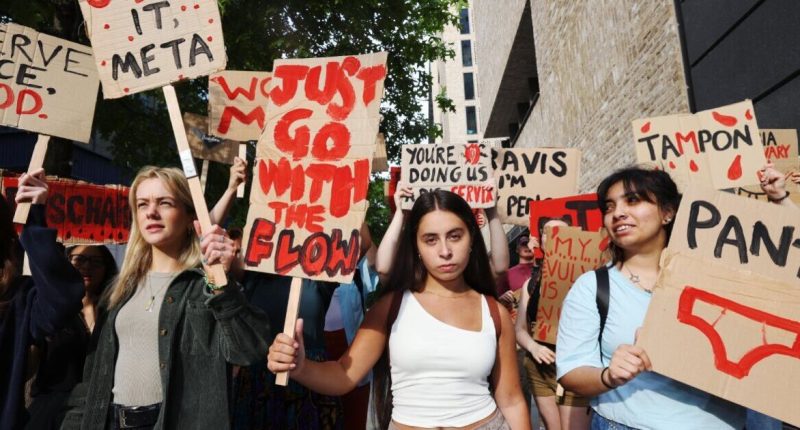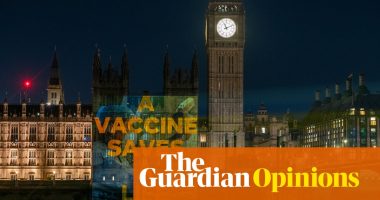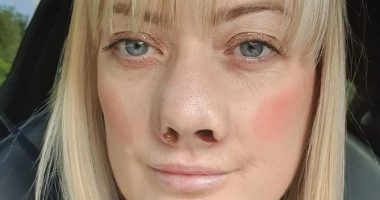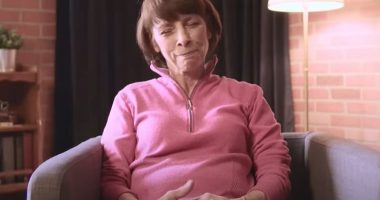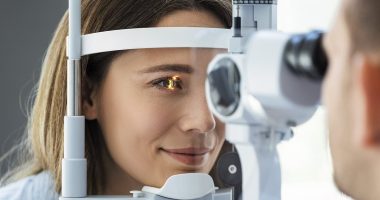Share this @internewscast.com
A study of 4,000 people found while three quarters of those aged 18-34 are turning to social media to educate themselves about male and female health, many struggle to find what they need.
Among users aged 18-24, 34% admit they find it difficult to source information when searching for women’s health – something 21% of those aged 25-34 agree with.
It emerged 77% of those aged 18-34 are aware of ‘shadow banning’ – when a user’s content is restricted, decategorised or hidden on a social media platform, limiting reach or engagement. Platforms such as Instagram and Facebook have been found to incorrectly remove content around women’s menstrual and sexual health, deeming it as adult content despite use of anatomical terms.
Three in 10 young adults spend over five hours a day using it as an essential place to communicate, read and learn more about health topics such as periods, menopause, incontinence and erectile dysfunction. But 33% of those aged 18-24, and 22% of 25-34 year olds are convinced content related to women’s health in particular can often be restricted or hidden on social media.
A campaign has been launched to end shadow banning on social media by hygiene and health company Essity, in collaboration with CensHERship, which campaigns for a level playing field for women’s health content, and the Period Equity Alliance – a group of charities and education institutions dedicated to ensuring everyone can access the products and education they need so no one is held back by their period.
Kate Prince, spokesperson for Essity, the company behind Bodyform and Modibodi, said: “Social media plays a pivotal role as a resource for young people to educate themselves, research and discuss their health and their bodies. But unfortunately for many, unaccountable algorithms that ultimately decide what they do and don’t see, mean that young people are being denied access to information that is crucial to understand their bodies and to empower them to seek the help they may need. Medically and anatomically correct language related to health should not be censored. We want to work with social media companies to put this right, and will be calling on the Government to help us find solutions.”
The research, carried out via OnePoll, found 52% of all adults agree shadow banning is appropriate on social media in some instances – in particular, anything which incites violence or abuse (74%), posts which are sexually explicit (67%) and foul and abusive language (55%). However, 45% don’t believe any restrictions should be placed on posts containing the correct medical or anatomical words and phrases to describe the human body.
While 44% think anyone should be able to publish content related to women’s health, for example menstrual health or breast cancer. And 41% agree essential information about men’s health should be available for people to view – such as content relating to erectile dysfunction or prostate cancer. Just under eight in 10 adults (77%) said words like ‘vagina’ or ‘periods’ should not be restricted on social media when used in an educational context.
And among those who use social media, 29% of those aged 18-24, versus 28% of those 25-34, would like to see more information posted on social media about periods. However, the sharing of information about menstrual health comes with censorship challenges, as period product brand Bodyform has experienced.
Spokesperson Nuria Antoja said: “Bodyform has been at the forefront of breaking barriers around menstrual health but it has not been without its challenges. Our advertising on some of the most popular social media platforms has been frequently held back after triggering automated censorship. Often this is simply because we have used words like period or vagina. If we’re serious about breaking taboos and encouraging conversations about women’s health that in some instances can save lives, then we’ve got to have the freedom to have open discussions on social media without censorship.”
The study found health and wellbeing content on social media is most consumed by the 25-34 year old age group – with 55% seeking out information on things like mental health, sex, cancer, menopause and periods. This age group is also most likely to post information about health and wellbeing on social media, as 30% share such content.
However, 34% of 25-34 year olds who are aware of shadow banning, and who post either personally or for business, are convinced content they have posted has been restricted in some way. Of these, a fifth were trying to share information about women’s health – 27% about general health and wellbeing.
Influencer Charlotte Emily, who has amassed 91.6k followers on Instagram through her honest content around self love, periods and endometriosis is no stranger to censorship via this platform. She said: “I’ve noticed a significant difference in engagement with my content when I discuss topics often considered ‘taboo’ – specifically women’s health, periods, or body image struggles – despite these being important and everyday conversations that shouldn’t be seen as controversial.
“A few years ago, content visibility was particularly limited if I used words like ‘period’ instead of euphemisms like ‘time of the month’ or ‘Aunt Flo’. While things have definitely improved since I first started speaking openly about women’s health online, I still find that these posts don’t get pushed out as widely as my more light-hearted fashion or lifestyle content.”
Clio Wood, co-founder of CensHERship (corr), which aims to tackle social media censorship of women’s health and sexual wellbeing content, said: “Social media is such a powerful and engaging way for people to learn about their health – and the knowledge being shared can help break down taboos and in some cases be lifesaving.
“But our own data shows that too often it’s women’s health content that is restricted or removed because it is incorrectly classified as ‘adult content’ simply for referring to a female body part. This is a broken system and women deserve better – they deserve equal, uncensored access to health information about their bodies.”
